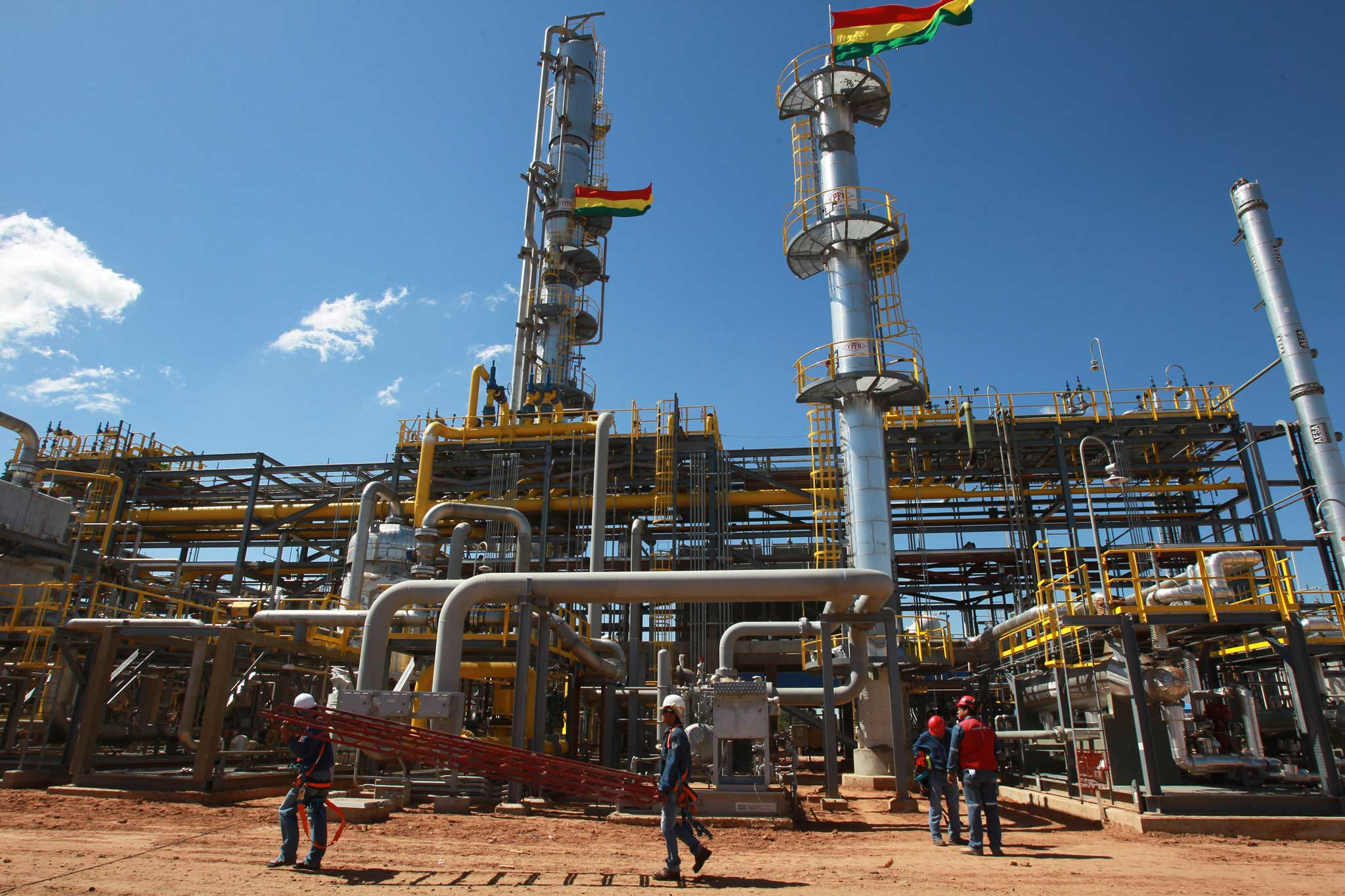
Bolivian President, Luis Arce, acknowledged that there has been a gradual decline in natural gas production from 2014 to date. This reduction is due to the fact that reserves have not been replaced in recent years, he explained.
According to data provided by YPF Bolivia (YPFB), production has decreased from 59 million cubic meters per day (MMm3/d) in 2014 to 38 MMm3/d at present, which represents a reduction of 35.5%.
“Obviously, the decline in gas is strong and comes from 2014. production is going downbut our government is working to reverse this situation,” said the president of the state oil company, Armin Dorgathen. The country is betting on Upstream Reactivation Plan, which includes 42 exploration projects in traditional and non-traditional areas in Bolivia.
Regarding this issue, President Luis Arce highlighted that “There has been a steady decline in natural gas production, which unfortunately has been falling to the bottom.” During a public event in the city of Oruro, he emphasized that “during all this time, we have lost a significant amount of gas reserves, which have not been replaced. This has left the country with limited capacity for gas production.” , cites a local media outlet.
Faced with this reality that Bolivia is going through, Dorgathen reaffirmed that the exploratory projects of the Upstream Reactivation Plan are accelerated to reverse the natural gas production curve.
He also indicated that, from 2015 to 2019, “there were not many exploration projects” and that, in 2020, during the administration of interim president Jeanine Áñez and the toughest stage of the pandemic, it was a “dead year” in which no projects were drilled or approved.
The state oil company has been executing its plan since 2022 and now, this year, it is intensifying to avoid a further drop in natural gas production. In addition to supplying the domestic market, Bolivian gas is sold to the Argentine and Brazilian markets.
According to the independent Bolivian Institute of Foreign Trade (IBCE), gas sales represented US$2,973 million, ahead of mining and the agricultural sector.
bolivianduring the government of Evo Moralesnationalized its natural gas reserves in 2006, in the hands, then, of a dozen Spanish, English, Brazilian, British and Argentine companies.
Morales, who ruled between 2006 and 2019, claimed that bolivian he was able to supply gas to the entire region, since, according to him, the country was sitting on a “sea of gas.”
With information from EFE and AFP.
Source: Larepublica
Alia is a professional author and journalist, working at 247 news agency. She writes on various topics from economy news to general interest pieces, providing readers with relevant and informative content. With years of experience, she brings a unique perspective and in-depth analysis to her work.












